I know developers feel doubts of choosing the IC role over a manager or vice versa. I'll tell about my own road how to find own purpose doing things I like.
What led you to software engineering?
I was raised in the ecosphere of tech because my dad is a software engineer at IBM, and my mom was a designer there, too. My dad always encouraged me to join STEM and take a look at computer science — however, I was convinced I wanted to be a medical doctor. In my first year of college, I declared a biology major and quickly realized I was not too fond of it. In my second semester, I switched to an actuarial science major where I took Introduction to Computer Science, and the rest is history. In my second year of college, I declared a computer science major and began my journey from there.
What is the most impactful thing you ever did to boost your career?
Writing blog posts and documenting my learning journey on Twitter has far been the best career boost. I wrote purely for myself to reference the things I learned over time, and I even utilized my design skills in Figma to create custom graphics depicting difficult concepts like CSS specificity. By sharing my blogs on Twitter and engaging with the people reading them, I was able to grow an audience extremely quickly. I began receiving conference speaking opportunities, podcast requests, and course invitations to teach with LinkedIn Learning and Frontend Masters.
Ultimately, I landed my job at Spotify through Twitter, too, when a friend and follower of mine asked if I would be interested in interviewing. Now I live in Stockholm working my dream job. It still blows my mind how tweeting about my blog led me to some of the most amazing career opportunities.
What would be your three tips for engineers to level up their career?
First, be patient. I often see posts on Twitter or LinkedIn about developers who were promoted to a senior position after a year. And while this is wonderful, I think we forget that each company has a different standard for what constitutes a senior developer, and everyone's journey will be different.
Second, don't be afraid to ask questions. If you try your best to solve a problem or answer a question you have, but you can't figure it out after a reasonable amount of time, ask a team member or mentor for help.
And lastly, invest in the right resources for learning. When I started my journey, I didn't know which platforms worked for me to learn. Now, I have a few trusted platforms such as Frontend Masters, Free Code Camp, or Level Up Tutorials that I go to when I need to learn a new skill.
You're currently working as a software engineer at Spotify. What does a typical day of yours look like there?
I begin my day answering emails. Then we have a team breakfast and a standup remotely as we're all still remote at Spotify. After that, we might have a web tech sync with the other squads in our business unit. The day usually includes some form of pair or mob programming, depending on the work stream.
My team always has Fika, a traditional Swedish coffee break, scheduled every afternoon. Every couple of Fridays, we have team games planned to release some stress.
Also, I tend to have a lot of free time to focus, which is nice but makes for a boring answer to this question!
Do you have some rituals or tools that keep you focused and goal-oriented?
I'll admit that I've been struggling with staying motivated in the time of remote work. I've been remote with Spotify since onboarding a year ago, but my team is wonderful, and they help me when I'm down.
Apart from that, I use Todoist to keep track of my tasks, and, naturally, I listen to Spotify while working. But other than that, not really. Maybe I should adopt some new tools to keep me on track!
My current favorite Spotify playlist is Brand New Chill: https://open.spotify.com/playlist/37i9dQZF1DX6uQnoHESB3u?si=380263b3c853442e
I also love Chillout Daily: https://open.spotify.com/playlist/7ozIozDp260fjNOZy1yzRG?si=66d6c839ec9b458a
You wrote a book called De-coding the Technical Interview. What was the impulse to do it?
I wanted to give the community a manual of the essentials of computer science knowledge to ace the technical interviews. The book covers data structures like stacks, queues, or linked lists, tackles algorithms, and deals with systems design. You'll also learn about the interview process from start to finish, get tips on how to submit an amazing take-home project, or understand how to problem solve. You'll also gain knowledge on the frontend coding skills needed to excel at a frontend interview.
If you could stress one piece of advice on surviving a technical interview, which would it be?
Do not lie your way through an interview. If you don't know the answer to something, just admit it. There's no shame in admitting you don't know the answer to something. There is shame in faking it and pretending like you do know the answer.
What's the single best practice everyone who writes code should follow?
Remember that while you are technically writing code for computers, you're also writing it for humans. Your code should be readable and have as little complexity as possible without sacrificing accessibility or performance.
In addition to the book, you co-host the Ladybug Podcast. What inspired you to enter this field, and what are the podcast's main topics?
We talk about everything tech and career on the podcast, from Java and GraphQL to how to start a business and cross-cultural communication. The podcast is a way for me and my co-hosts to share our experiences in tech, having taken different paths. And I'm really glad for doing it — it has allowed me to meet so many incredible people, learn many new things, and support my dream of teaching.
What pieces of your work are you most proud of?
My technical interview book was a huge feat for me as well as my courses with LinkedIn Learning on building a tech resume. I enjoy creating things that help other people advance their careers, so I'm also proud of my courses with Frontend Masters on design systems and CSS.
***
Follow Emma on Twitter
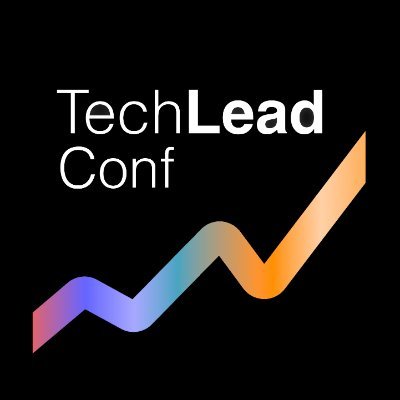






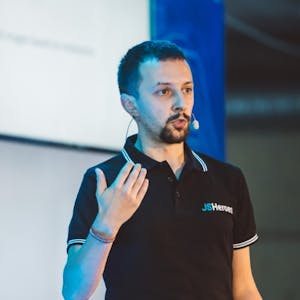



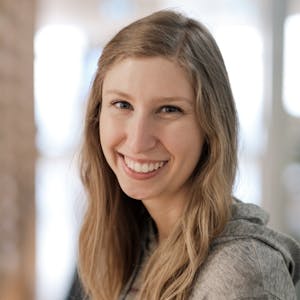
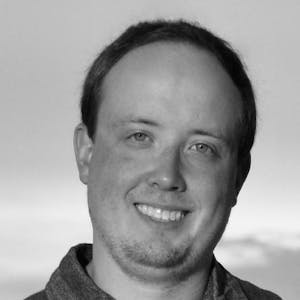

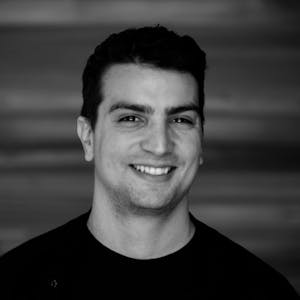
















Comments